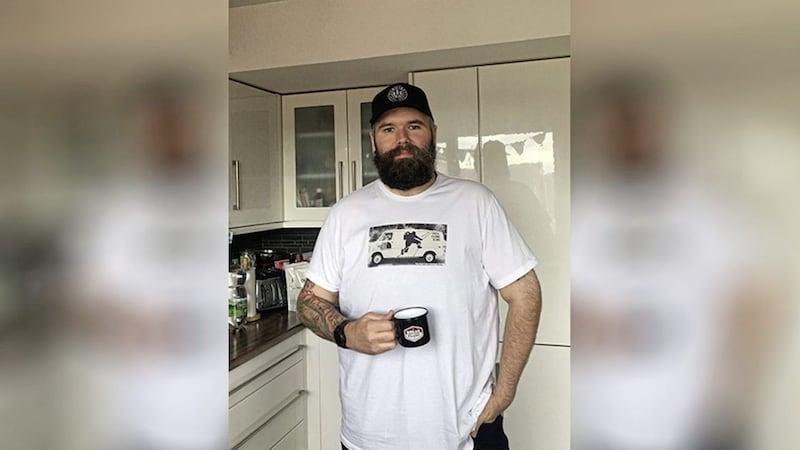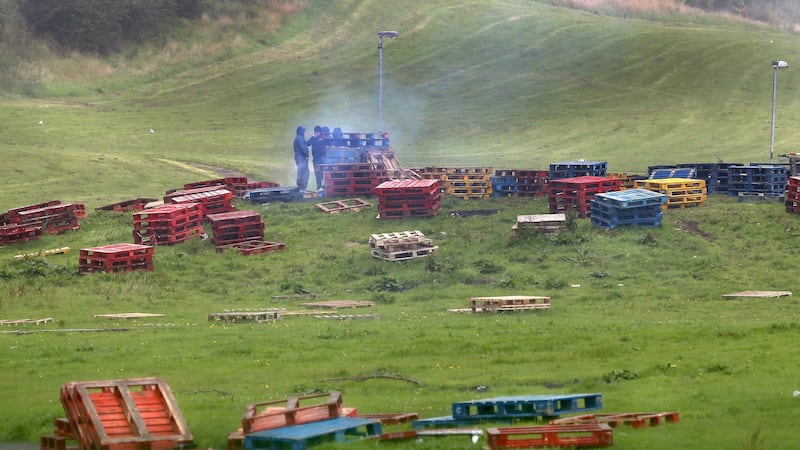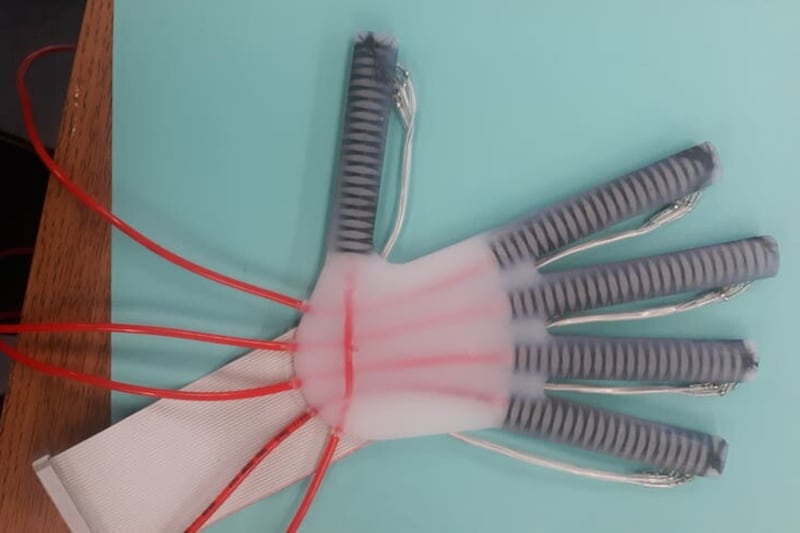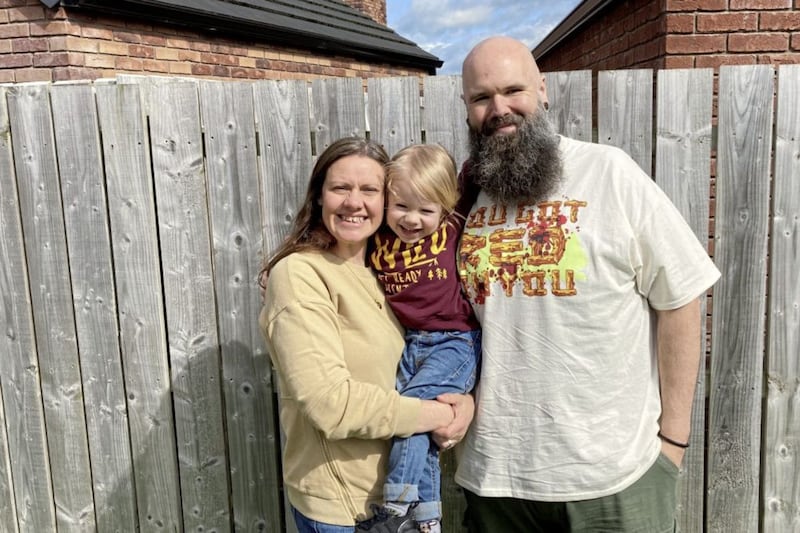A CO Armagh man has told of how he is still "holding for the good days" to return after suffering a devastating stroke at the age of just 40.
Paul McLean from Lurgan had to learn how to speak again following the stroke last year.
But the English and drama teacher has described how a "series of fortunate coincidences" meant he was able to undergo a revolutionary procedure to help save his life.
As one of thousands living with aphasia - a common communication difficulty after stroke - he is telling his story to highlight a new Stroke Association campaign raising awareness of the challenges faced by survivors.
Mr McLean was at home with his wife Suzanne when he noticed he could not lift his right hand. Spotting the signs of a stroke she remembered the FAST test, asking him to smile and raise his arms, before calling an ambulance.
Mr McLean said a "really bizarre situation and a series of fortunate coincidences probably saved my life", the first was his wife being at home after a last minute change of plan.
"If she hadn't been there and gotten help so quickly I would probably be dead," he said.
Paramedics transferred Mr McLean, who was "extremely ill", to the Royal Victoria Hospital, Belfast for a brain scan where medics thought he would benefit from a procedure called thrombectomy, which involves inserting a small tool into the brain to remove the blood clot, which caused the stroke.
The procedure usually only takes place on weekdays, but another lucky coincidence meant he was able to avail of this treatment on a Saturday.
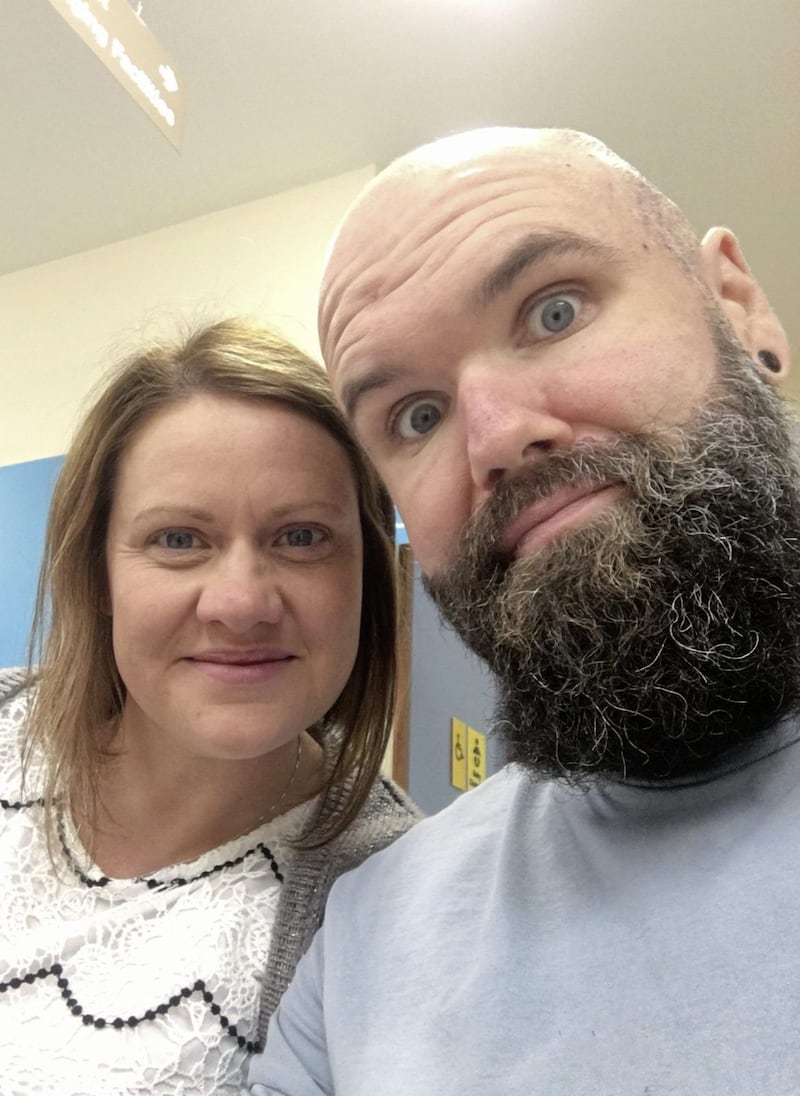
"When I arrived in Belfast I was scanned and they discovered my stroke was caused by a massive blood clot in my brain," he said.
"The consultant who specialises in the clot removal treatment just happened to be in the hospital catching up on some paperwork. The nurses ran down to his office and asked him if he could scrub in to do the procedure and he said yes.
"It was another fortunate coincidence. Any other Saturday and I might not have been able to get the surgery I needed."
The main side effects of Mr McLean's stroke are extreme fatigue and difficulties with communication.
"At first I couldn't really speak at all," he said.
"I had a few words and could say my name but that was about it. It was all very confusing and my brain wasn’t able to function properly.
"It took me a long time to process what had happened and for a first few weeks I don’t think I really knew what had happened. The thought of not being able to chat to my wife or friends again was terrifying."
Mr McLean said "slowly but surely more words came back" and the support of the Stroke Association helped when he "really wasn't sure where to turn".
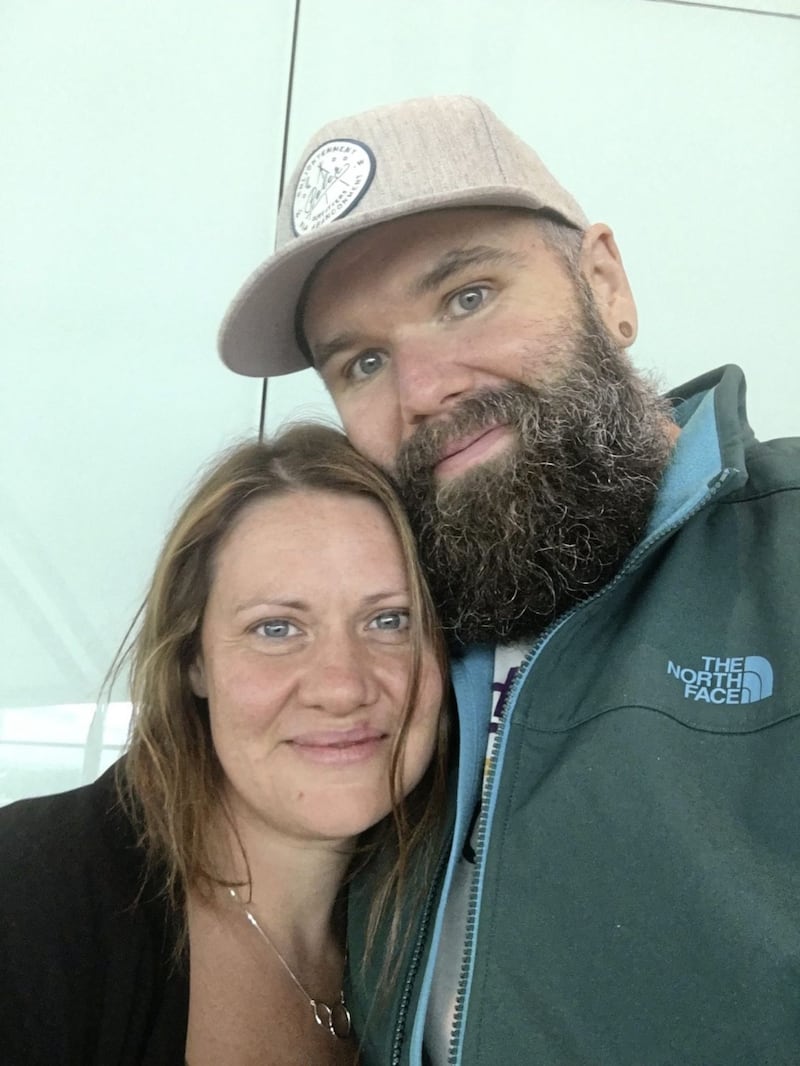
"As an English and drama teacher, language and words are a massive part of my life, and my previous job as an actor, no words would destroy me," he said.
Catherine Lowry from the Stroke Association said after stroke one in three sufferers have difficulty communicating.
"But with the right help and support many stroke survivors are able to find new ways to communicate and in turn can rebuild their lives once more," she said.
The Stroke Association is urging people to show their support for stroke survivors who are lost for words, please visit www.stroke.org.uk/lostforwords.
